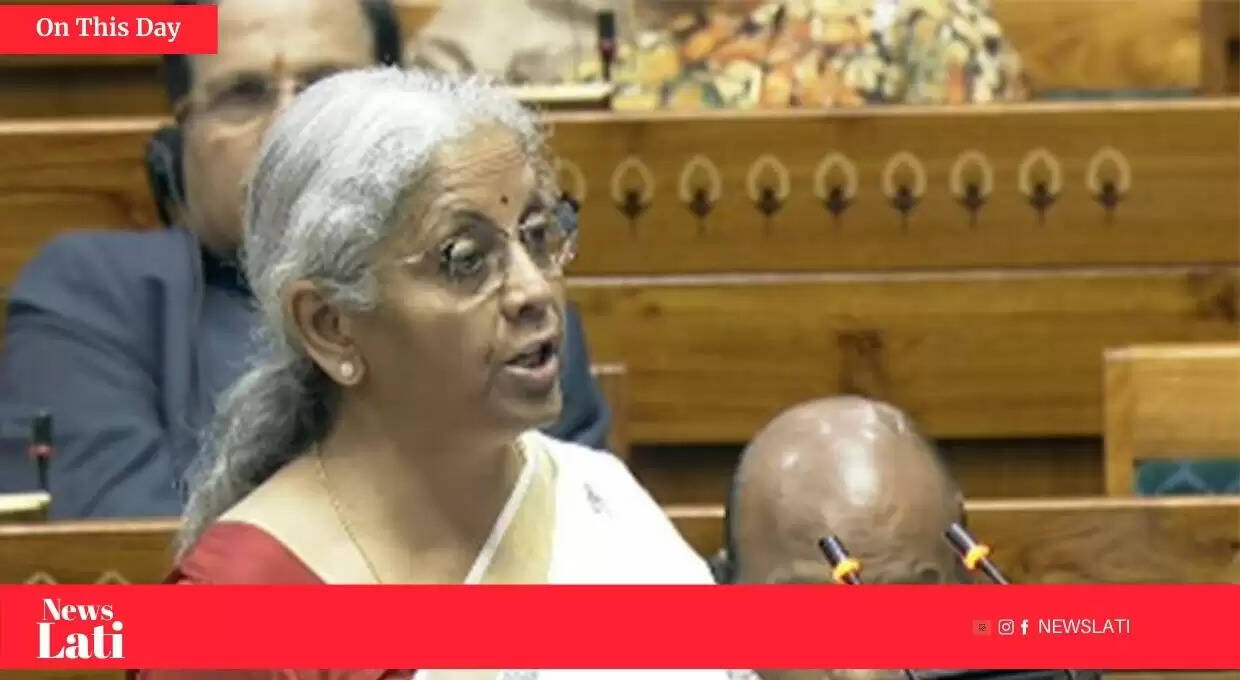No Income Tax on Earnings Up to Rs 12 Lakh in New Tax Regime
A Victory for the Middle Class: Thanks to Persistent Advocacy by Arvind Kejriwal

-
Tax Exemption: No income tax on incomes up to Rs 12 lakh under the new tax regime.
-
Middle-Class Relief: Significant financial relief for middle-income families in India.
-
Advocacy Impact: Recognition of Arvind Kejriwal's persistent efforts for the common man.
-
Budget 2025 Announcement: Announced by Finance Minister Nirmala Sitharaman in the Union Budget 2025.
-
Economic Impact: Expected to boost consumption, savings, and investment among the middle class.
In a landmark announcement during the presentation of the Union Budget 2025, Finance Minister Nirmala Sitharaman declared that under the new tax regime, no income tax would be payable on earnings up to Rs 12 lakh. This decision marks a significant moment for the middle class in India, promising to leave more money in the hands of millions of taxpayers and potentially spur economic growth through increased consumption and savings.
The new tax regime, which was initially introduced to simplify the tax structure and provide relief, has now been further enhanced to cater directly to the needs of the middle class. This change means that individuals with an annual income up to Rs 12 lakh will not have to worry about income tax liabilities. For salaried employees, this threshold extends to Rs 12.75 lakh when considering the standard deduction of Rs 75,000, further broadening the scope of this benefit ().
This tax relief has been attributed, in part, to the relentless advocacy by political figures like Arvind Kejriwal, who has consistently championed the cause of the "Aam Aadmi" (common man). His vocal push for policies that benefit the middle class has been acknowledged across social media platforms, where many are crediting him for this policy shift. The acknowledgment in this context underscores the impact of political advocacy in shaping economic policies that directly affect the daily lives of citizens ().
Finance Minister Sitharaman emphasized in her budget speech that this measure is designed to "substantially reduce the taxes of the middle class and leave more money in their hands, boosting household consumption, savings, and investment." This tax regime adjustment is seen as part of a broader strategy by the government to stimulate the economy by enhancing disposable income, which in turn could lead to higher spending on goods and services, thereby supporting economic growth ().
The no-tax policy up to Rs 12 lakh underlines a progressive approach to taxation, aiming to make tax compliance easier and less burdensome for the average citizen. It is expected to particularly benefit those in urban areas where the cost of living is higher, aligning tax policy with the economic realities faced by many Indian families. The new tax slabs introduced alongside this announcement further adjust tax rates for higher income brackets, ensuring a more equitable distribution of tax obligations ().
However, experts caution that while this is a commendable step towards easing the financial burden on the middle class, individuals should still consider the nuances between the old and new tax regimes. The old regime might still offer benefits through various deductions and exemptions not available under the new regime, suggesting that taxpayers should evaluate their personal financial situation to determine the most advantageous tax strategy ().
In conclusion, this tax exemption up to Rs 12 lakh in the new tax regime is not just a fiscal policy change but a significant gesture towards recognizing the economic contributions and needs of middle-class families. It's a testament to how persistent public discourse and advocacy by leaders like Arvind Kejriwal can lead to tangible benefits for the common man, perhaps setting a precedent for future economic policies aimed at grassroots level impact.
